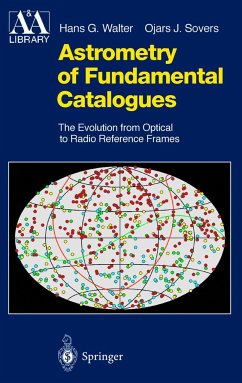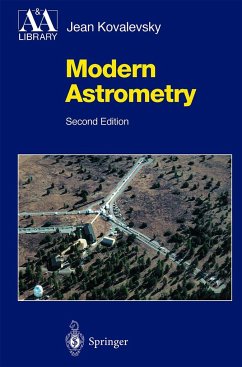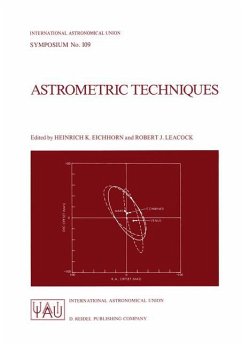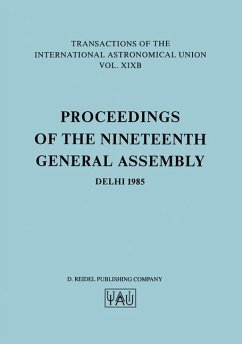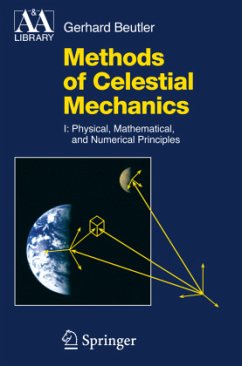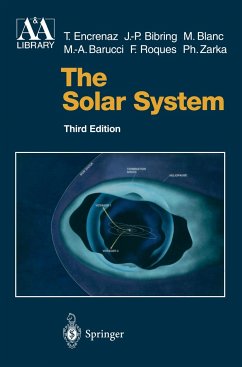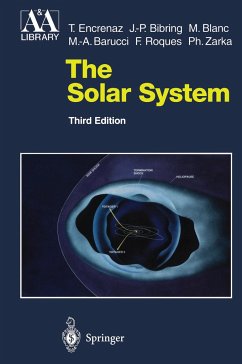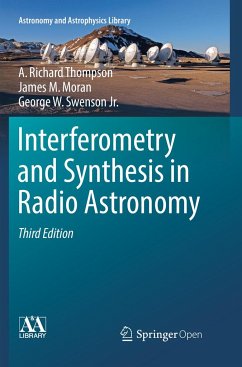
Astrometry of Fundamental Catalogues
The Evolution from Optical to Radio Reference Frames
Versandkostenfrei!
Versandfertig in 6-10 Tagen
76,99 €
inkl. MwSt.
Weitere Ausgaben:

PAYBACK Punkte
38 °P sammeln!
Celestial fundamental catalogues are a prerequisite for the determination of absolute positions and motions in space. Presently, positional astrometry is at the watershed between classical fundamental catalogues, based on moving reference stars, and modern catalogues, based on extragalactic reference objects with non-measurable motion. This book addresses the concepts and methods of the respective construction techniques leading to the stellar frame of the FK5 (fifth fundamental catalogue) and to the newly adopted extragalactic radio reference frame, ICRF (international celestial reference fra...
Celestial fundamental catalogues are a prerequisite for the determination of absolute positions and motions in space. Presently, positional astrometry is at the watershed between classical fundamental catalogues, based on moving reference stars, and modern catalogues, based on extragalactic reference objects with non-measurable motion. This book addresses the concepts and methods of the respective construction techniques leading to the stellar frame of the FK5 (fifth fundamental catalogue) and to the newly adopted extragalactic radio reference frame, ICRF (international celestial reference frame), with its extension to optical wavelengths by the Hipparcos Catalogue. While principal outlines of meridian circle observations are given, emphasis is put in some detail on the VLBI technique as applied to astrometry, and to the observational techniques used in the Hipparcos mission, including the tie of the originally non-anchored rigid Hipparcos sphere into the ICRF.





